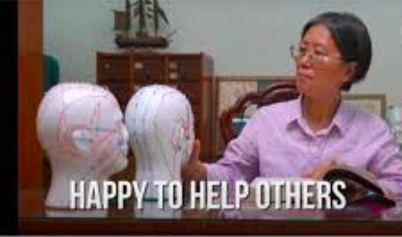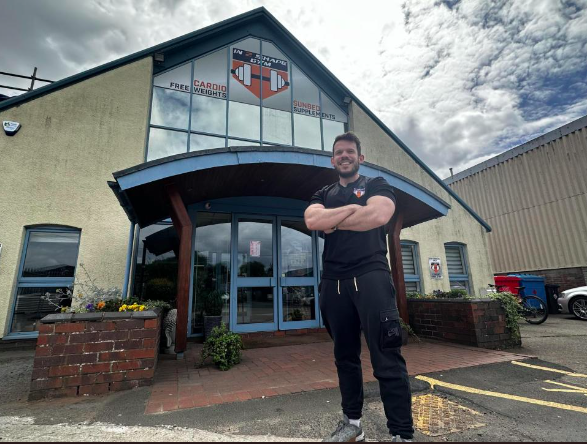Trending Stories
Decoding the Silent Terror of Heart Attacks: Unseen Symptoms and Stealthy Risks

Decoding the Silent Terror of Heart Attacks: Unseen Symptoms and Stealthy Risks
Silent heart attacks are the crafty masqueraders of the medical world. Unlike their louder counterparts, they often leave no apparent trace of their deadly visit.
These stealthy killers hide in plain sight, posing significant threats to heart health. Alarmingly, research from Harvard University reveals that almost 45% of heart attacks are silent, making it a pressing concern that demands immediate attention.
Hiding in the Shadows: The Silent Heart Attack Menace
Silent heart attacks, or silent myocardial infarctions (SMI), don’t play by the standard rules of illness. Common diseases announce their presence through telltale signs and symptoms such as fever, aches, and pains.
Yet, the symptoms of a silent heart attack can be so ambiguous or non-existent that it’s often misdiagnosed or overlooked.
These elusive cardiac episodes cause more damage than you might think. Being hard to detect makes them even more deadly.
Unsettlingly, their victims often disregard vague symptoms like fatigue, heartburn, gastric influx, and indigestion.
Consequently, by the time individuals seek medical help due to more severe symptoms like shortness of breath, their hearts have already suffered significant damage.
Who’s on the Silent Heart Attack Radar?
According to heart.org, women and individuals with diabetes are more likely to suffer from a silent heart attack.
Symptoms might mimic a digestive issue, a strained muscle in the chest or upper back, or excessive fatigue. Furthermore, men over 45 and women over 55 generally face a higher likelihood of experiencing a heart attack.
Dr. Rahul Gupta, a renowned Cardiologist at Apollo Hospitals, Navi Mumbai, sheds more light on this covert heart assailant.
He states that a silent heart attack doesn’t feel like a typical heart attack, which is usually characterized by stabbing pain in the arm, neck, or jaw, shortness of breath, sweating, or dizziness.
In fact, the symptoms of a silent heart attack can be so fleeting and mild that people often mistake them for other health issues and delay seeking proper medical care.
Stressful or strenuous activities could potentially trigger a silent heart attack. Abrupt increase in physical activity or exposure to extreme cold may also contribute to the risk.
Can I Unknowingly Suffer a Silent Heart Attack?
Unfortunately, the answer is yes. Silent heart attacks often go unnoticed as the individual may not realize it’s a cardiac problem.
Often, such heart attacks are discovered incidentally during medical tests like an electrocardiogram (ECG) or imaging scans, conducted for unrelated reasons.
This underlines the importance of regular medical check-ups, particularly for those with a family history or other risk factors for heart disease.
Could a Silent Heart Attack Be Fatal?
Yes, silent heart attacks can be fatal. Without timely diagnosis and treatment, heart muscle damage can escalate, leading to an increased risk of future cardiovascular events, including potentially fatal heart attacks or heart failure.
Moreover, individuals who experience silent heart attacks often have underlying risk factors for heart disease, such as high blood pressure, high cholesterol, or diabetes. If not managed, these factors can expedite the progression of heart disease.
Who Is at Greater Risk?
The risk of silent heart attacks typically increases with age, with those over 65 being more prone. Certain health conditions, such as chronic kidney disease, peripheral artery disease, or a history of stroke, can increase this risk.
Are Diabetics More Susceptible?
Indeed, diabetes significantly increases the risk of heart disease, and those with diabetes are more likely to develop cardiovascular complications, including silent heart attacks. It is, therefore, crucial for diabetics to monitor their heart health meticulously.
Can I Dodge the Silent Heart Attack Bullet?
Prevention is undoubtedly the best strategy. Adopting a heart-healthy lifestyle can significantly reduce the risk of a silent heart attack.
A balanced diet, regular physical activity, and quitting smoking are all part of this equation. Regular check-ups and screenings can also help in early detection and timely intervention.
How Do We Combat Silent Heart Attacks?
Treatment hinges on angiography results. If critical blockages are found in key areas, angioplasty or bypass surgery may be needed. In other cases, medical management and Enhanced External Counterpulsation (EECP) therapy may prove beneficial.
For a healthier heart, awareness is the key. Acknowledging the existence and understanding the workings of silent heart attacks could potentially save countless lives.
source: https://www.hindustantimes.com/lifestyle/health/silent-heart-attack-hidden-signs-and-symptoms-that-are-likely-to-go-unnoticed-101689921038984.html
Trending Stories
Sister Regina Liu: Empowering Health Through Acupuncture

Sister Regina Liu: Empowering Health Through Acupuncture
In the bustling world of healthcare, Sister Regina Liu stands out as a beacon of holistic healing. Her journey into the world of acupuncture is not only inspiring but also transformative for the countless individuals she has treated.
Through her dedication, Sister Regina has brought traditional Chinese medicine to the forefront, offering an alternative and complementary approach to modern medical practices.
The Journey of Sister Regina Liu
Sister Regina Liu’s path to becoming a renowned acupuncturist began with her deep-rooted interest in holistic health. Born into a family that valued traditional Chinese medicine, Sister Regina was exposed to the benefits of acupuncture from a young age. Her early fascination turned into a lifelong passion as she pursued formal education and training in the field.
Acupuncture: Bridging Ancient Wisdom and Modern Health
Acupuncture, a practice with origins in ancient China, involves inserting thin needles into specific points on the body to balance the flow of energy or “qi.” Sister Regina Liu has mastered this ancient art, using it to address a wide range of health issues.
From chronic pain to stress management, her expertise has provided relief to many who had exhausted conventional treatment options.
Impact on Community Health
Sister Regina’s impact extends beyond individual treatments. She has been instrumental in educating the community about the benefits of acupuncture, breaking down misconceptions, and making the practice more accessible.
Her workshops and seminars have enlightened many about the holistic approach to health, emphasizing the interconnectedness of body, mind, and spirit.
Success Stories and Testimonials
The success stories of Sister Regina’s patients are a testament to her skill and dedication. Many individuals who had lost hope found solace in her treatments.
For instance, Maria, a long-time sufferer of migraines, experienced significant relief after just a few sessions with Sister Regina. Her story is just one of many that highlight the transformative power of acupuncture under Sister Regina’s care.
Challenges and Triumphs
Like any journey, Sister Regina’s path was not without challenges. Integrating acupuncture into mainstream healthcare faced resistance initially.
However, her perseverance and the undeniable results of her treatments gradually won over skeptics. Today, Sister Regina is not only respected in the field of acupuncture but also in the broader medical community.
The Science Behind Acupuncture
While acupuncture is rooted in ancient practices, modern science has begun to unravel the mechanisms behind its effectiveness. Studies have shown that acupuncture can stimulate the release of endorphins, the body’s natural painkillers, and improve blood circulation.
These scientific validations have further cemented acupuncture’s place in contemporary healthcare, thanks in part to advocates like Sister Regina Liu.
Acupuncture in Modern Healthcare
Sister Regina’s work exemplifies how traditional practices can complement modern medicine. Hospitals and clinics increasingly incorporate acupuncture into their treatment plans, recognizing its benefits in pain management, mental health, and overall well-being. This integration signifies a broader acceptance and understanding of holistic health practices.
Future Vision
Looking ahead, Sister Regina Liu envisions a future where acupuncture and traditional Chinese medicine are fully integrated into the global healthcare system. She continues to advocate for research, education, and policy changes that support the inclusion of holistic practices in mainstream medicine.
How to Get Started with Acupuncture
For those new to acupuncture, Sister Regina offers practical advice on getting started. She recommends finding a certified acupuncturist, understanding the treatment process, and maintaining an open mind. Her guidance helps demystify acupuncture, making it more approachable for newcomers.
Conclusion
Sister Regina Liu’s journey in empowering health through acupuncture is a remarkable tale of dedication, resilience, and success. Her contributions have not only alleviated individual suffering but also enriched the broader understanding of holistic health. As acupuncture continues to gain recognition, Sister Regina’s legacy will undoubtedly inspire future generations of healers.
FAQs
1. What conditions can acupuncture treat?
Acupuncture can address various conditions, including chronic pain, migraines, stress, anxiety, digestive issues, and more. It is also used to support overall wellness and balance.
2. Is acupuncture safe?
Yes, when performed by a certified and experienced acupuncturist, acupuncture is safe. It involves using sterile, single-use needles and adhering to proper hygiene practices.
3. How many sessions are needed to see results?
The number of sessions varies depending on the condition and individual response. Some may experience relief after one session, while others may need multiple treatments.
4. Does acupuncture hurt?
Acupuncture needles are very thin, and most people feel minimal to no discomfort. Some may feel a slight tingling or warmth at the needle site.
5. How do I find a qualified acupuncturist?
Look for acupuncturists who are certified by recognized professional organizations and have positive patient reviews. Personal recommendations and consultations can also help in making an informed choice.
References
Trending Stories
In 2 Shape Gym Unveils Major Expansion in Stourport
Trending Stories
9 Reasons Why In-Person Friendships Are Irreplaceable
-

 Trending Stories1 year ago
Trending Stories1 year agoCDC: 1 in 4 Americans Still COVID-Free by End of 2022
-

 Health5 years ago
Health5 years agoMeghan Trainor Shares Motivational New Song ‘Blink’
-

 Health6 months ago
Health6 months agoHow Do Pawpaw Seeds Support Cardiovascular Health?
-

 Health2 years ago
Health2 years agoHow Long Does Monkey Pox Last Before It Surfaces in the Body?
-

 Health3 years ago
Health3 years agoWhat Causes Swollen Body? Understanding Edema and its Triggers
-

 Health3 years ago
Health3 years agoNutrition and the Importance of a Fitness Program – 3 Things to Know
-

 Health3 years ago
Health3 years ago5 Weird Reasons Why Pimples Disappear After Marriage
-

 Health2 years ago
Health2 years agoHealth Benefits Of Pawpaw Seed? 7 Things To Know







